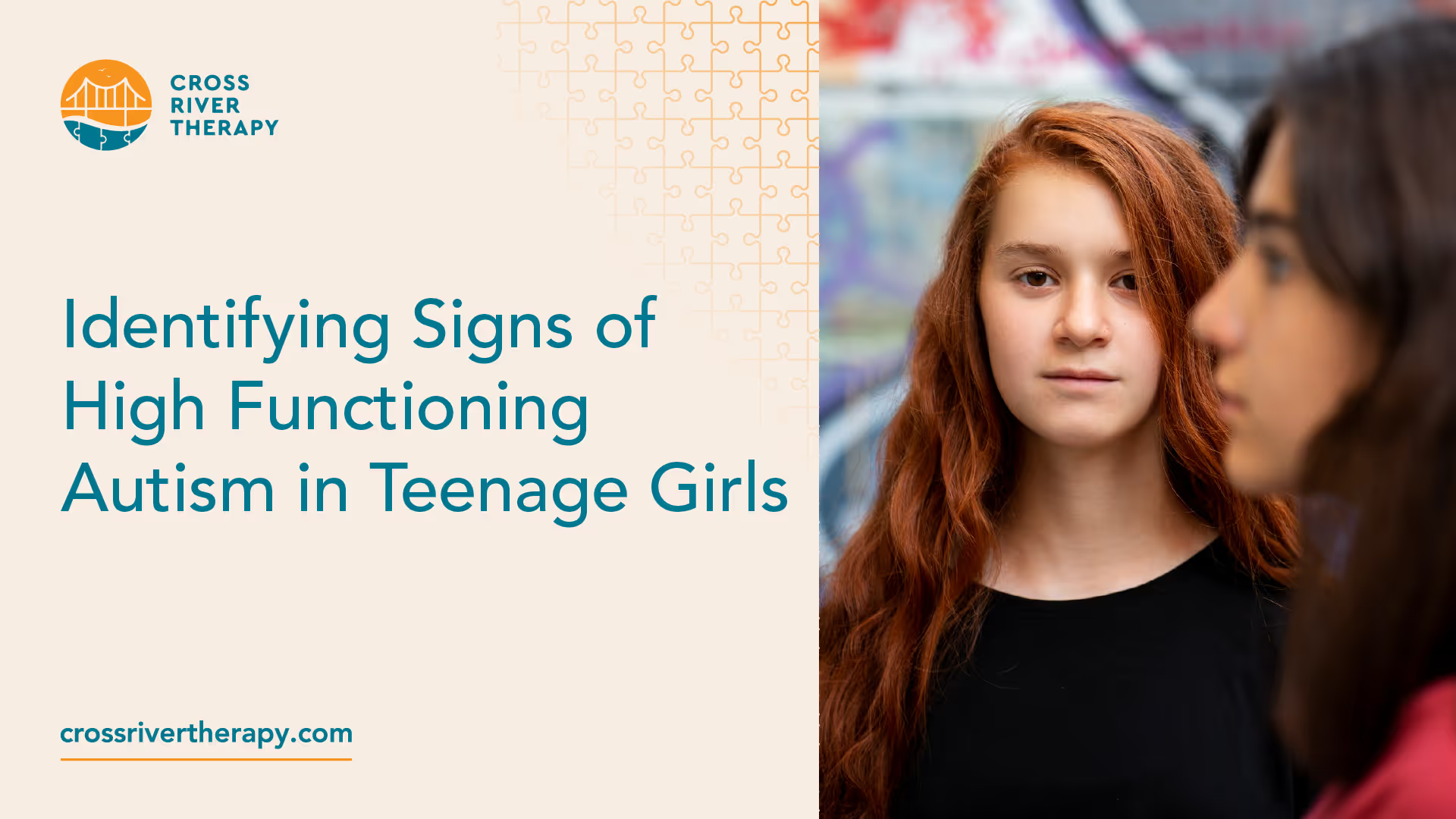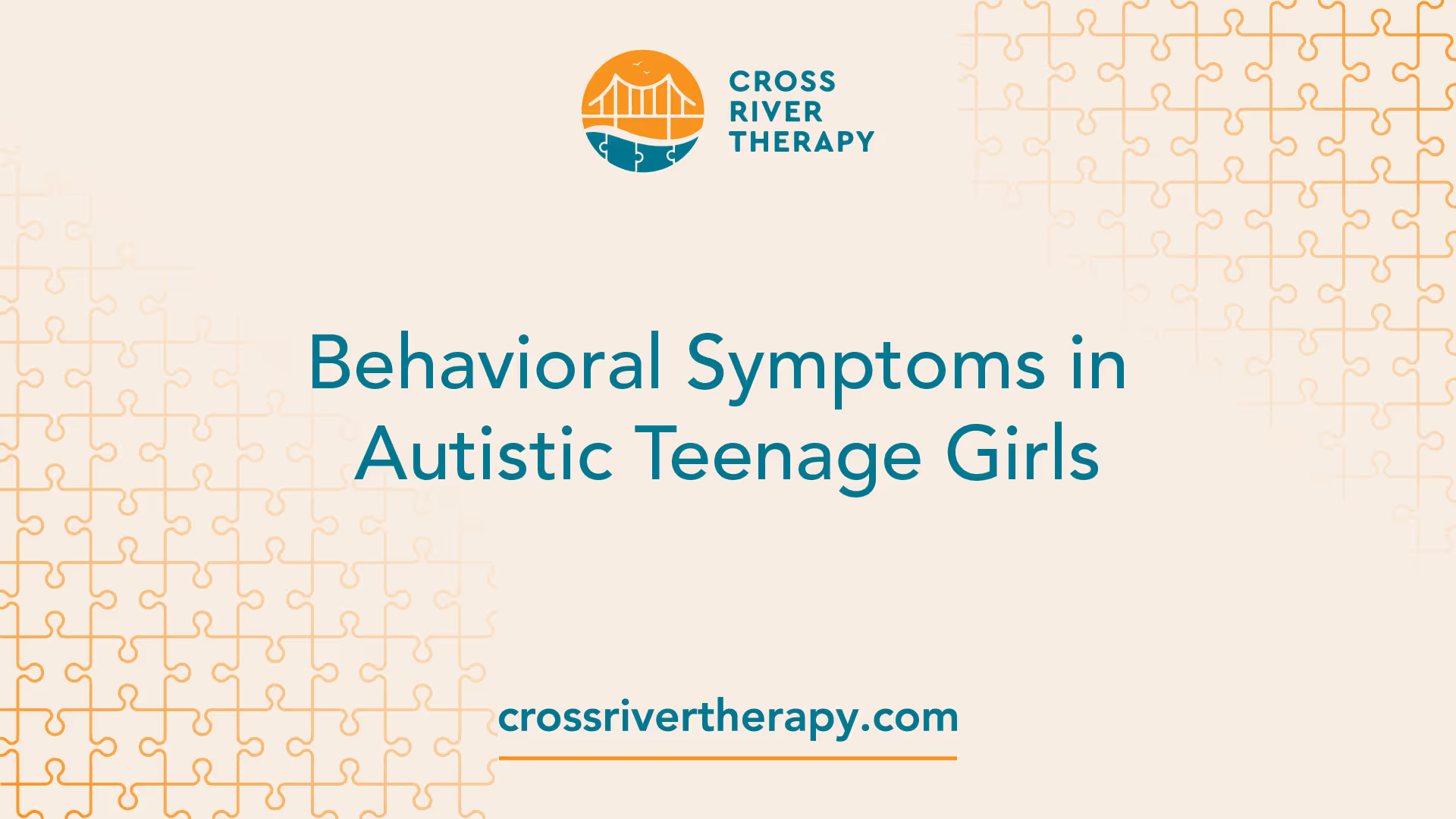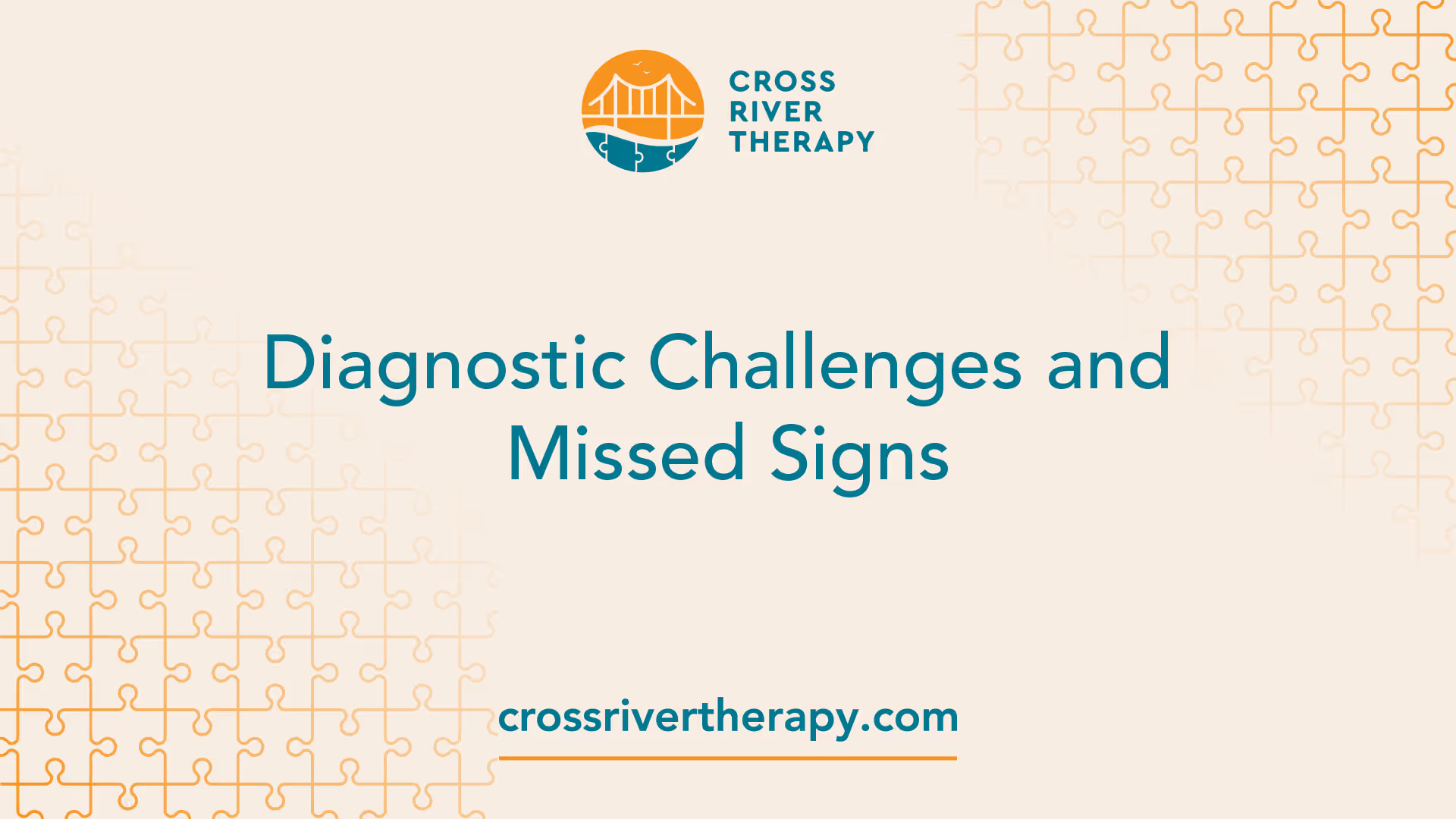Identifying Signs of High Functioning Autism in Teenage Girls
Empower yourself by recognizing signs of high functioning autism in teenage girls to give the right support.
Recognizing Autism in Teenage Girls
Unraveling the signs of high functioning autism in teenage girls can be a complex task for parents, families, and even healthcare providers. This complexity arises from unique presentation challenges and existing gender disparities in diagnosis.

Unique Presentation Challenges
Girls with autism often present differently from their male counterparts, leading to missed or delayed diagnoses [1]. Autistic girls may not show some of the "classic" traits that are more often seen in boys. Sometimes, girls learn how to mask autistic traits or overcompensate for them, in order to appear more neurotypical or seemingly "normal" to others.
In many cases, girls with subtle autism traits and those who have learned to mask their symptoms may not be diagnosed with autism until they are pre-teens, teens, or adults. Cultural beliefs and misconceptions contribute to missed autism diagnoses in girls, as many are expected to behave in ways that may not align with typical autism traits [2]. For a comprehensive look at these challenges, visit our article on symptoms of high functioning autism in teenage girls.
Gender Disparities in Diagnosis
Gender disparities in the diagnosis of autism largely stem from historical biases. Diagnostic criteria for Autism Spectrum Disorder (ASD) have historically been based on research primarily focused on boys and men, causing many healthcare providers and mental health professionals to overlook autism in girls.
Moreover, research from 2019 indicates that females with autism are more likely than males to camouflage their symptoms, potentially needing to display more intense or a higher number of symptoms to receive a diagnosis of autism.
Efforts are being made to make the diagnostic criteria more inclusive for autistic individuals who are not male. However, there is still a lot of progress to be made to bridge this gap. For a deeper understanding of these disparities, our article on characteristics of high functioning autism in teenage girls provides further insight.
Recognizing the signs of high functioning autism in teenage girls is critical for early intervention and support. By understanding these unique challenges and gender disparities, parents and caregivers can empower themselves to advocate for their children and seek the appropriate support.
Behavioral Symptoms in Autistic Teenage Girls
Identifying the signs of high functioning autism in teenage girls can be a challenging task for many parents. Autism often presents differently in females, leading to delayed or missed diagnoses. Some of the common behavioral symptoms include struggles with social interactions and unique communication and sensory sensitivities.

Social Interaction Struggles
Teenagers with autism often struggle with social interactions. Despite a desire for social connection, they may have difficulty interpreting facial expressions, expressing emotions, or engaging in tasks with reciprocity [4].
Some of these struggles may include:
- Difficulty understanding social cues
- Challenges maintaining eye contact
- Struggles with making and maintaining friendships
- Difficulty in understanding or expressing emotions
You can find more information on social challenges in teenage girls with high functioning autism in our dedicated article.
Communication and Sensory Sensitivities
In addition to social interaction struggles, many teenagers with autism experience unique communication and sensory sensitivities. They may find it difficult to express their thoughts and feelings, often leading to misunderstandings and frustrations [1].
Sensory sensitivities can manifest in various ways and vary from person to person. A teenager with autism might be overly sensitive or under-sensitive to sensory input. For example, they might be bothered by loud noises, bright lights, or certain textures.
Communication and sensory sensitivities may include:
- Difficulty in expressing thoughts and feelings
- Overly sensitive or under-sensitive to sensory input
- Distress in busy or noisy environments
- Preference for specific textures or tastes
Recognizing these signs of high functioning autism in teenage girls is the first step towards getting the help and support they need. For more detailed information, visit our article on communication difficulties in teenage girls with high functioning autism.
Remember, every individual with autism is unique, and these symptoms can present differently from one person to another. It's crucial to seek professional help if you notice these signs in your child. With early intervention and appropriate support, teenagers with autism can lead fulfilling and successful lives.
Diagnostic Challenges and Missed Signs
Identifying the signs of high functioning autism in teenage girls presents unique challenges due to certain behaviors and traits that can often be overlooked or misunderstood. Understanding these complexities can help parents and caregivers recognize potential signs earlier and seek the necessary support.

Masking and Camouflaging Behaviors
One of the key challenges in diagnosing high functioning autism in teenage girls is the common tendency for these girls to exhibit "camouflaging" or "masking" behaviors. These behaviors involve the girl learning to hide or compensate for her autistic traits in an attempt to appear more neurotypical. This can include mimicking social interactions they observe in others or suppressing behaviors that might be seen as socially unacceptable.
While these masking behaviors can help girls with high functioning autism blend into social environments more easily, they can also make it more difficult for parents, teachers, and healthcare professionals to identify their autistic traits. As a result, this often leads to delayed diagnosis and missed signs, which can contribute to emotional and mental health challenges over time.
Impact on Diagnosis Timing
The ability to mask autistic traits, coupled with a general societal bias that autism is more common in boys, can significantly delay the diagnosis of autism in girls. According to Verywell Health, there is a three-to-one ratio of boys to girls diagnosed with autism, and it's estimated that 39% more women should be diagnosed with ASD than currently are.
The impact of delayed diagnosis is not insignificant. Without an understanding of their condition, girls with high functioning autism may struggle with unexplained difficulties and feelings of being "different". This lack of understanding can lead to co-occurring conditions like anxiety, especially as social and relationship demands increase during adolescence.
In conclusion, understanding the unique characteristics of high functioning autism in teenage girls, including the tendency towards masking behaviors and the impact of these behaviors on diagnosis timing, is vital. By increasing awareness and understanding, parents and caregivers can play a pivotal role in identifying signs of high functioning autism in teenage girls and seeking early, effective support.
Supporting Autistic Teenage Girls
Once you've understood the symptoms of high functioning autism in teenage girls, the next step is to find ways to support and empower them. This includes focusing on social skills training programs and teaching them effective coping strategies and emotional regulation techniques.
Social Skills Training Programs
Social skills training programs like Stop Think Do, The Secret Agent Society (SAS), and The Program for the Education and Enrichment of Relational Skills (PEERS®) are designed to teach and develop social skills in autistic teenagers [5]. These programs use a variety of strategies like role-playing, self-management techniques, and video modeling to help teenagers better understand and navigate social interactions.
In addition to formal training programs, parents can use everyday situations to encourage their autistic child to see situations from another person's perspective and understand their feelings. This helps them develop empathy and enhances their social skills.
Autistic teenagers can also benefit from using social media to connect with people they know from school or activity groups. This allows them to take their time to communicate and reduces the need to interpret non-verbal cues.
Coping Strategies and Emotional Regulation
Understanding the triggers of an individual is imperative to being able to teach coping strategies in certain situations. Knowing the best way to deal with anxious and stressful emotions can be really helpful to a person with autism.
Coping strategies can include techniques like deep breathing, progressive muscle relaxation, and mindfulness. These techniques can help autistic teenagers manage their stress, reduce overwhelm, and regulate their emotions.
Parents and caregivers can also help by creating a safe and supportive environment where the teenager feels comfortable expressing their feelings and emotions. This includes being patient, understanding, and providing reassurance when needed.
Supporting a teenage girl with high functioning autism involves understanding her unique characteristics, providing her with the right tools and resources, and being there to support her emotionally. By doing so, you can help her navigate the challenges of autism and empower her to lead a fulfilling and meaningful life.
Seeking Diagnosis and Professional Support
While understanding the symptoms of high functioning autism in teenage girls can be a challenge, it's crucial for parents and caregivers to be proactive in seeking diagnosis and professional support. Early identification of signs and access to support resources can greatly improve the quality of life for teenage girls with autism.
Identifying Signs Early On
Girls with autism are often underdiagnosed or diagnosed later in life due to the way autism presents differently in females, leading to missed or delayed diagnosis [1]. Therefore, it's crucial for parents to learn about the unique characteristics of high functioning autism in teenage girls.
Teenagers with autism often struggle with social interactions, communication, understanding social cues, and maintaining eye contact [1]. If you observe these patterns in your child's behavior, it might be worth seeking a professional opinion. Remember, each child is unique, and these signs can manifest differently or to varying degrees in different individuals.
Resources for Parents and Caregivers
Parents and caregivers are not alone in this journey. There are a plethora of resources available to help with understanding and managing high functioning autism in teenage girls. For instance, social skills training programs like Stop Think Do, The Secret Agent Society (SAS), and The Program for the Education and Enrichment of Relational Skills (PEERS®) are designed to teach and develop social skills in autistic teenagers [5].
Using strategies like role-playing, self-management techniques, joining social groups, using social media, social skills training programs, social stories, watching TV programs, video modeling, and visual supports can also be beneficial in developing their social skills.
Parents can use everyday situations to encourage their autistic child to see situations from another person's perspective and understand their feelings, helping them develop empathy and social skills.
Navigating the world of autism can be a challenging task, but with the right support and resources, parents and caregivers can empower their children to overcome social challenges and communication difficulties. It's important to remember that every child with autism is unique and their journey will be their own. As parents and caregivers, the best we can do is provide them with the tools, support, and understanding they need to thrive.
References
[1]: https://www.abtaba.com/blog/autism-in-teenagers
[2]: https://www.verywellhealth.com/signs-of-autism-in-girls-260304
[3]: https://psychcentral.com/autism/comparison-of-boys-and-girls-living-with-autism-spectrum-disorder
[4]: https://www.davidsongifted.org/gifted-blog/gifted-on-the-spectrum-or-both/
[5]: https://raisingchildren.net.au/autism/communicating-relationships/connecting/social-skills-for-teens-with-asd
[6]: https://www.autismparentingmagazine.com/coping-skills-reducing-overwhelm/



